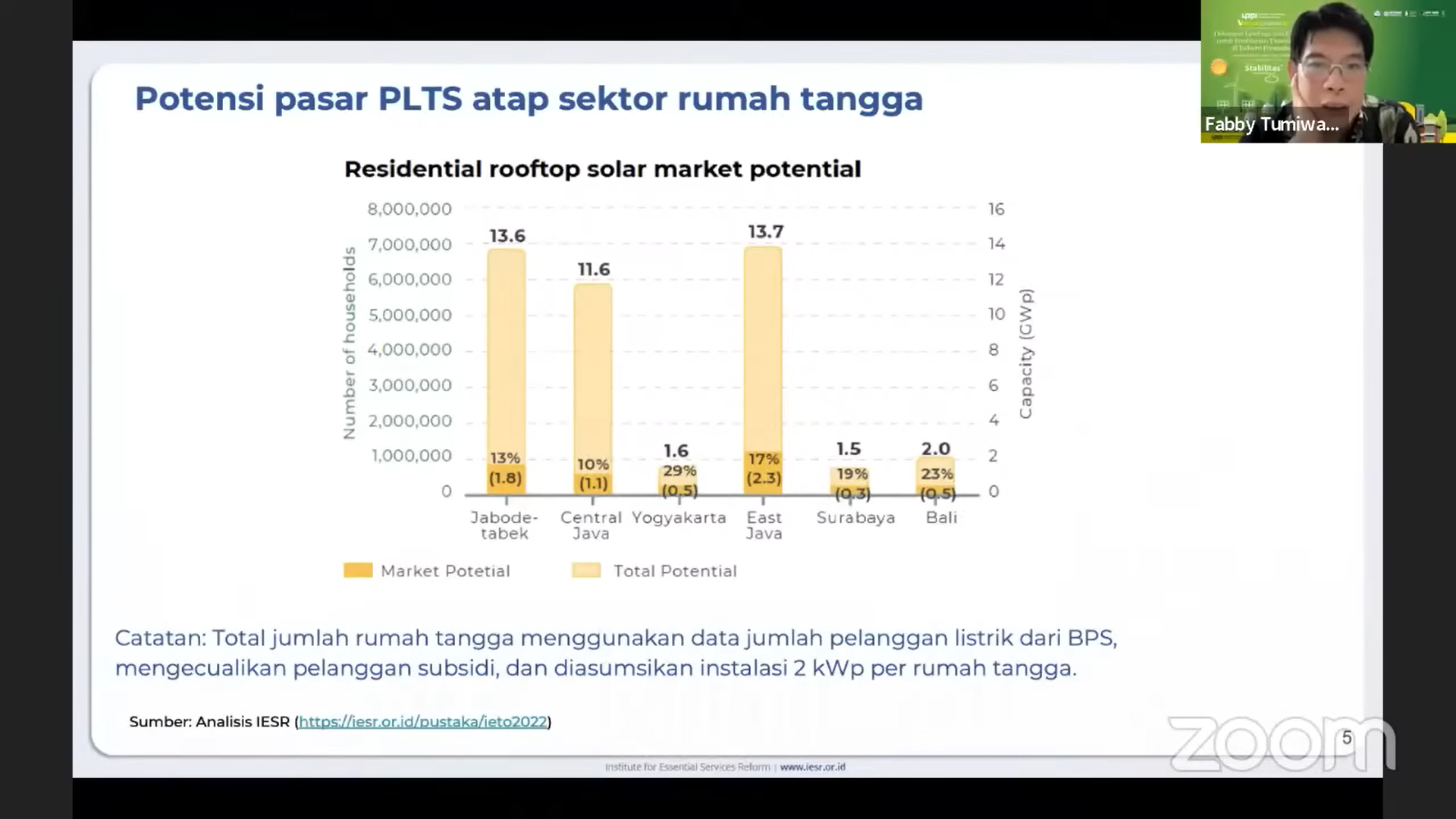Jakarta, June 9, 2022 – The potential for the use of rooftop PV in the residential sector is one of the largest in accelerating the energy transition and achieving Indonesia’s renewable energy mix target. Appropriate policy instruments and attractive financial support are some of the supporting factors in encouraging the massive adoption of rooftop solar PV in Indonesia.
Andriah Feby Misna, Director of New and Renewable Energy, stated that Indonesia has several national targets, i.e achieving a 23% renewable energy mix by 2025, reducing emissions by 29% with own efforts and 41% with foreign assistance by 2030, and achieving net zero emission by 2060.
“For this reason, the Ministry of Energy and Mineral Resources has developed various strategies such as green RUPTL at PLN and encouraging the use of rooftop solar in the household sector and including them in national strategic programs. As support (on rooftop PV), we issued the Minister Regulation No. 26/2021,” she explained.
Feby added that the current number of rooftop solar customers is 4,377 households, and there has been significant growth since the issuance of a ministerial regulation that regulates PLN customers who install rooftop PV in 2018.
Feby does not deny that currently there are still barriers in the implementation of the MEMR Regulation No. 26/2021, but she said that her party is currently trying to find a win-win solution so that the regulation can take effect immediately.
In addition to regulations that are still not optimal, another obstacle to the use of rooftop solar in the household sector is the initial investment which is still relatively large for the community. However, there is still a large market potential in the household sector.
Fabby Tumiwa, Executive Director of IESR, explained that based on a gradual market survey conducted by IESR since 2019, the market potential for rooftop solar PV in the residential sector in a some big cities in Indonesia such as Greater Jakarta, Surabaya, Central Java and Bali reached 34 – 116 GW.
“The potential of the energy transition market in the household sector is huge. Those who fall into the category of early followers and early adopters need to be caught. Because they are quite familiar with their products (rooftop PV) and have the intention to install them, but are constrained by a large initial investment,” Fabby explained.
Respondents of the survey expect credit products from banks with a tenor range of 24-48 months with low interest.
Veronika Susanti, Digital Lending Division Head of OCBC NISP bank explained that the renewable energy sector is one of the concerns of the banking sector to obtain funding.
“Currently we have a solar panel financing program with two schemes. First, 0% credit card installments and cash loan for a maximum of 36 months,” said Veronika.
She added that her party was collaborating with solar panel service providers to make it easier for customers to access this rooftop PV financing scheme as well as to learn about technology so that they better understand the risks and opportunities of rooftop PV.
Fendi Gunawan Liem, founder and CEO of SEDAYU Solar also emphasized that the potential for the residential sector to grow and develop is enormous.
“The residential sector is the sector that has the latest solar panel installation regulations, but has the largest customer growth compared to other sectors,” said Fendi.
Banks as financial institutions need to see rooftop solar as a low-risk asset, for that it is necessary to study rooftop solar power technology so that they can make accurate risk analysis. Thus, banks can design more friendly credit schemes with more diverse tenors and lower interest rates.

